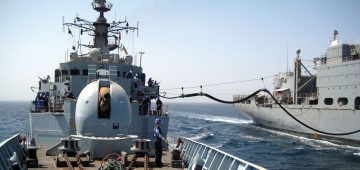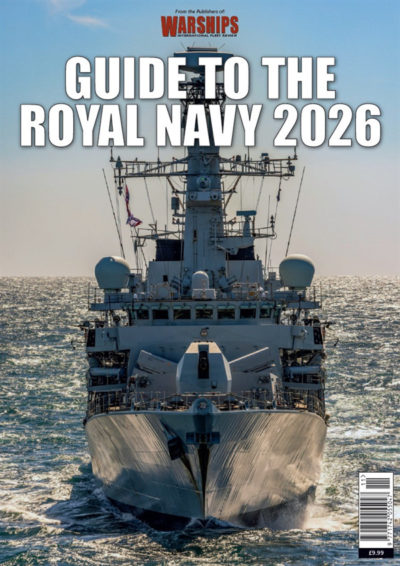Odin’s Eye
WARSHIPS PLOUGHSHARES
The Cold War ended in 1991 with the collapse of the Soviet Union, which had been rendered bankrupt by the Reagan arms race. People in the West were promised a bounty – the so-called Peace Dividend – that would divert money spent on defence to public programmes. General prosperity and international goodwill would remove the danger of a Third World War and bring an end even to small conflicts.
A new world order would be brought in, which would be arbitrated by West standards. However, a different and less adept generation of Western leaders subsequently launched neo-liberal wars but when they invaded Iraq forgot to look in the history books. Successful conquering armies do not disband the defeated army or state infrastructure, as the USA did in 2003. In dismantling Iraq, the USA destroyed a secular state that had maintained a balance of power between its communities – Shiite and Suni, Christian and Jew – opening a Pandora’s box
The past 25 years have proved that wider political ambitions of some states remain the same. For example, it does not matter which regime is in power in Moscow, Russia’s long-term geopolitical goals are unchanged. For a while in the turmoil that arose in the aftermath of the disintegration of the Soviet Union, it appeared that a new Russia would emerge. However, Russia under Putin has the same agenda as ever, and in the Crimea, Eastern Europe, and the Middle East it is nationalist, imperialist and revanchist.
At the same time asymmetric warfare – conflict between professional armies and terrorists or other non-state actors, in which the weaker group uses unconventional tactics to exploit the vulnerabilities of the stronger – has morphed into hybrid warfare. Alliances of state and non-state actors apply conventional, irregular, terrorist and criminal skills.

These include cyber warfare and the skilful use of the media to spread convenient lies as so-called ‘fake news’ among other things. Putin’s Russia has proven expert at hybrid warfare, easily befuddling the West, for example, during its takeover of the Crimea via the use of unidentified troops wearing no insignia (but to any expert eye Russian naval infantry and Special Forces). Nor have small, but savage, wars ceased since 1991. From the Balkans to Syria conflicts have been conducted with a religious and ethnic ferocity not seen in Europe since the 30 Years War in the early 17th Century. Meanwhile, over the past quarter century the West has laid down its arms.
One only has to look at the Royal Navy to see what this means. It is not just the reduction in numbers of ships and aircraft, sailors and marines but the loss of swathes of capability, including fixed-wing aircraft and Surface-to-Surface Missiles (as highlighted by Odin in the January 2017 edition). So, we have entered 2017 inhabiting a much more unstable world than could possibly have been forecast even 12 months ago. A particular defence concern is whether NATO will be strengthened or weakened by the creation of a Euro Army and the effect on the alliance’s foundations of President Trump (due to be sworn in on the day this edition was published). Europe is in political turmoil while the Americans may seek an accommodation with the Russians – recognising their supremacy strategically over the Black Sea, Eastern Mediterranean and parts of the Middle East – while squaring up to China.
The Trump administration appears to be heading for confrontation with Beijing, not just over trade but also over access to the South China Sea and freedom of the seas. Britain is not a bystander, and depends upon the freedom of the seas for the 95 per cent of goods it imports and exports. The Royal Navy has signed a trilateral agreement to patrol the South China Sea alongside the US Navy (USN) and the Japanese Maritime Self Defense Force (JMSDF).
With so much uncertainty around, we must fear the unexpected. Britain and other Western European nations need to claw back the Peace Dividend and gear up to meet new threats. With Russia and China building massively powerful navies they are not afraid to wield aggressively – to deny other states the freedom of the seas – the comparatively weak Western Europeans need to urgently rearm and turn those Peace Dividend ploughshares into warships.







Comments
Sorry, comments are closed for this item